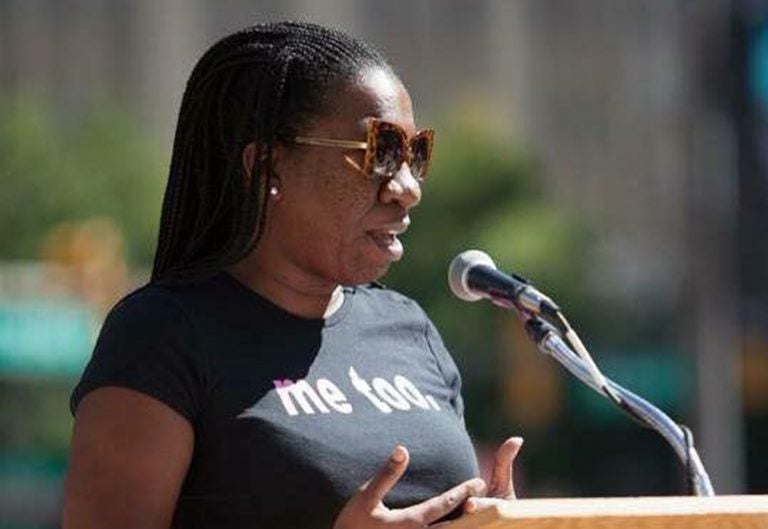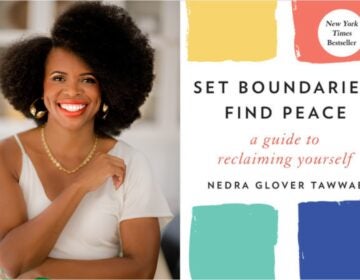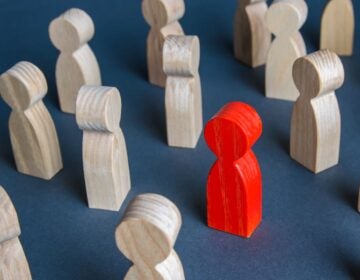‘My initial reaction was panic’: #MeToo campaign creator on continuing the sexual assault conversation
Activist Tarana Burke, who lived in Philadelphia until recently, created the "Me Too" movement more than 10 years ago. Here's her conversation with WHYY's Annette John-Hall.

Former Philadelphia resident Tarana Burke launched the Me Too movement 10 years ago. (Photo provided)
No one was more surprised than Tarana Burke when actress Alyssa Milano took to social media using the hashtag #MeToo, a campaign to raise awareness of sexual harassment and assault against women in the wake of the allegations against Hollywood producer Harvey Weinstein.
Burke, an activist and filmmaker, launched the “Me Too” movement more than a decade ago to give voice to survivors of sexual abuse. Until recently, she lived in Philadelphia, where she talked to girls about “Me Too” in schools and organizations, giving them a language to share their stories.
Burke, now director of programs at Girls for Gender Equity in New York, is working on a documentary about sexual violence. She spoke to WHYY’s Annette John-Hall about her ongoing work on behalf of women and girls.
Note: This interview has been edited for length and clarity.
Q. When you saw social media explode over the weekend with the #MeToo hashtag, what did you think?
A. I was awakened by messages from friends who were either tagging me in a post or asking me privately, “Is this you? How are these people you don’t know talking about your work?” When it started growing, I started to worry a little bit, because I had been doing this work for a long time, and I didn’t want it just to be couched as a hashtag and move on like so many other hashtags are. So my initial reaction was panic.
Q. It sounds like you were a little conflicted about a campaign that has gone viral.
A. I was. I mean, the beauty of it, and why I started using #MeToo, is because it’s so simple and complete. It’s a conversation starter or the whole conversation. I was used to seeing this happen in smaller spaces, where people connect with each other and not just women on TV. But people, you know — girls, women, transgender, nonconforming, some men — just connected with the commonality of being a survivor.
What is concerning was just that there was no container to hold those two simple words. It can evoke a lot of pain and memory for people who don’t know how to sit with it or talk about it. So I was a bit concerned about that.
Q. What are the origins of your work?
A. About 20 years ago, I was working with young people in the South who were survivors of sexual assault. There was not a culturally competent container to help them to even understand what sexual violence was, the various types of violence they had experienced. So I started to give young folks language to start talking about healing and what the possibilities of what healing looked like.
Q. Your work has to do with women who were sexually assaulted. Yet this social media campaign has been broadened to include women who have also been sexually harassed. How do you feel about that?
A. All of it is sexual violence. We just have to name it as such. So I get it. It all needs to be addressed. There’s a spectrum of sexual violence that goes from sexual harassment to murder, and our lives are affected by it.
Q. What do you hope will come out of this increased awareness?
A. I absolutely believe in using pop culture to push out a message. I always reference it when I talk to young people — I talk about celebrity women who were victims of sexual violence. So I’m fine with that. My hope though is that people will not just sit with the hashtag and that we’ll keep having conversations. Because whether you’re a survivor or not, everybody has a role to play in ending sexual violence and everybody can play a role in helping survivors of sexual violence heal.
WHYY is your source for fact-based, in-depth journalism and information. As a nonprofit organization, we rely on financial support from readers like you. Please give today.




